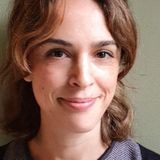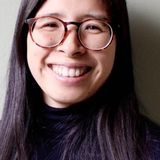The resurgence of the coronavirus particularly across Europe makes clear that the pandemic will not pass soon. In addition, European cities have to deal with other crises concerning for example social inequality, polarisation and the living conditions of migrants. The cultural and creative sectors can be a driver of social impact in its own right, favouring resilience and innovation. In this program of the Infected Cities series, we look at Paris. Together with DutchCulture, we searched for different ‘city makers’ in Paris such as artists, designers and other storytellers. During this LIVECAST the speakers will give us an insight into their daily works and explain how they commit to making a positive impact in their city in ongoing corona times.
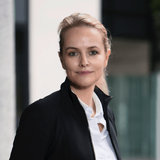
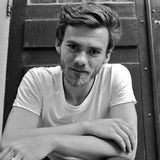
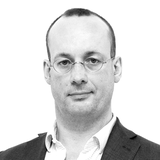
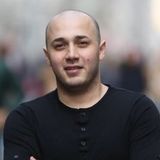
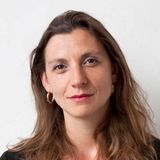
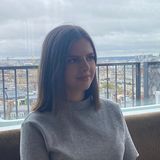
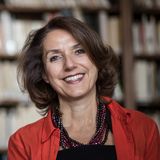
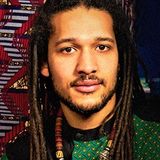
Repercussions of the pandemic on Paris and Parisians
France has been in a second lockdown since the end of October. In addition to the Covid-19 crisis, the country is struggling with a number of explosive issues – fears of terrorism, mass protests against police brutality, the security law and unemployment. What are the socio-economic consequences of these crises on Paris and its inhabitants? What are the lessons learnt from the pandemic and what is needed to making Paris more resilient in these challenging times? Before the country opens up on 15 December, we will have a conversation with experts and journalists about the most pressing questions the Fench capital is currently dealing with.
Parisian resilience through arts and culture
Paris is one of the world’s most important centres for art and culture. The city has a long legacy in setting trends and attracting artists across the globe. Internationalisation is in the DNA of Paris. How has the pandemic affected the creative sector amid closing art centres and lockdowns? In this unprecedented context, what is the role of culture and what innovative projects have artists initiated in the capital? We will talk with professionals from the different art disciplines as well as institutions to discuss their hardships and inspirations, and how they create hope, connection, empowerment and solidarity.
About the speakers:
Cécile Maisonneuve is Chairman of La Fabrique de la Cité, the urban innovation think tank since 2015. She is a member of the scientific board of the AMS Amsterdam Institute (Amsterdam Institute of Advanced Metropolitan Solutions), a member of the board of directors of the Foundation Le Corbusier, and a Senior Advisor to the Centre for Energy of the French Institute for International Relations (IFRI).
Marijn Kruk studied history and political philosophy. He is a France correspondent for De Correspondent, Trouw and De Groene Amsterdammer and in 2009 he published the book ‘Parijs Denkt’, about the public and intellectual life of the French.
Yuriy Zavalnyouk was born in Vinnitsya, Ukraine in 1991 and migrated to France when he was fifteen years old. First he studied at the Conservatoire de Toulon before entering the prestigious CNSAD (Conservatoire National Supérieur d’Art Dramatique de Paris). He recently performed in “Blasted” by Sarah Kane and “Ivanov” by Tchekhov directed by Christian Benedetti, also in “The Master And Margarita” by Boulgakov and “Les couleurs de l’air” written and directed by Igor Mendjisky, also in “Ivanov” and “The Chalk Circle” adapted and directed by Emmanuel Besnault, in “Four Corners of a Square with its Center Lost”, written and directed by Bertrand de Roffignac, and finally “Our Innocence”, “Fauves”, “Littoral” written and directed by Wajdi Mouawad.
Mohammed Badra was born in Douma, Syria. He studied architecture at Damascus University but had to abandon his studies in his third year due to the war. After working for other news agencies he joined epa in October, 2015 as staff photographer. Mohammed has also worked with the Syrian Red Crescent as a first-aider, psychological supporter and photographer. In the World Press Photo Contest 2019 one of Badra’s images was among the six final nominations for the World Press Photo of the Year and he won Second Prize in the Spot News, Stories category. Further, Mohammed is the 2018 recipient of the Marco Luchetta award for photography. He was named TIME Wire Photographer of the Year in 2016, and Young Photographer of the Year in the Prix Bayeux-Calvados War Correspondents Competition of the same year.
Laurence Aëgerter currently has an exhibition at the Petit Palais, museum of the Beaux-Arts academy in Paris. Aëgerter’s extensive oeuvre comprises of photographic series, site- specific installations, community projects and artist’s books, addressing the permanent transformation that lies in the essence of things. By making an inventive use of archives and existing images from illustrated books to museum collections, she examines the archive that shapes our collective memory. Displacement and translation play an important part in her work. In recent years she shift her focus to the fragile edges of the human mind and applied her playful appropriation of images in collaborative projects involving, among others, patients dealing with mental health issues, neurologists, psychiatrists, and psychologists.
Blachette has become popular in the illustration community on social networks. Thanks to a style that combines humor, emotion and news with characters of all origin. The Fumigène media, born in the suburbs of Caen, spotted his talent. She is the only illustrator of this quarterly magazine which tries to reconcile media and working-class neighborhoods. This native illustrator from Perpignan presents herself as a “sneaker addict”. She publishes drawings of anonymous ‘outfits of the day’ seen in the street, in transport, or in clips. She draw also scenes from her daily life: a young woman fan of street culture who, with her unbreakable baskets at the foot, is committed against discrimination and for the environmental protection.
Isabelle Mallez is responsible for the International affairs of the cultural department of the city of Paris. Before she was working for the ministry of foreign affairs as director for l’Institute francais.
Mario Orsinet is a drummer, composer and musical director of the Monkuti group. A young prodigy of the Afrobeat drums, he has well integrated and recycled through a singular playing the accents of the Master Tony Allen who transmitted to him his playing of drums and his teachings. A versatile drummer, he studied Jazz in New York with drummers such Ralph Peterson, Dan Weiss and Clarence Penn. Back in Paris, he shares the stage with the pioneers of Afrobeat and ex-musicians of Fela Kuti: Délé Sosimi, Kologbo, Chief Udoh and Kiala Nzavotunga. In 2013, he founded the group “Monkuti” with which he toured Parisian theaters then joined other groups such as the “Smith Brothers” or more recently the Afro-Venezuelan group “Raul Monsalve y los Forajidos”.

Riot officers fire teargas and charge protesters in one incident after fireworks launched at their lines

A combination of cramped quarters, economic stress and accusations of police abuse is inflaming tensions in the poorer districts around the city.




